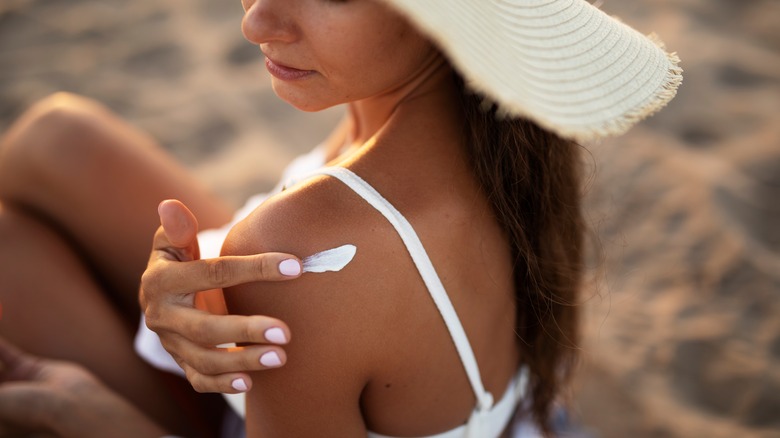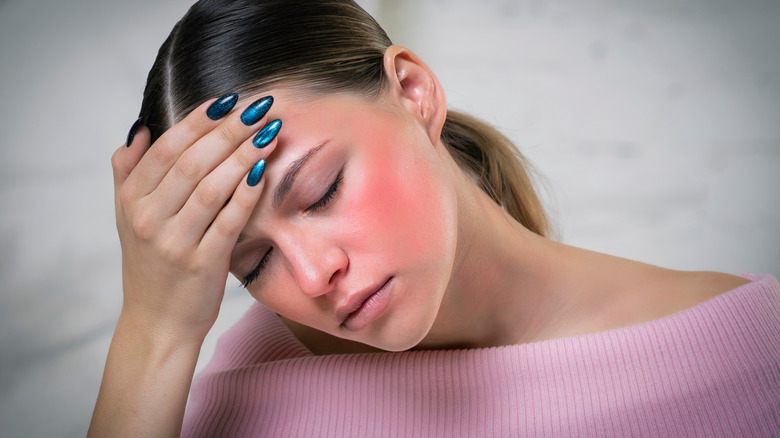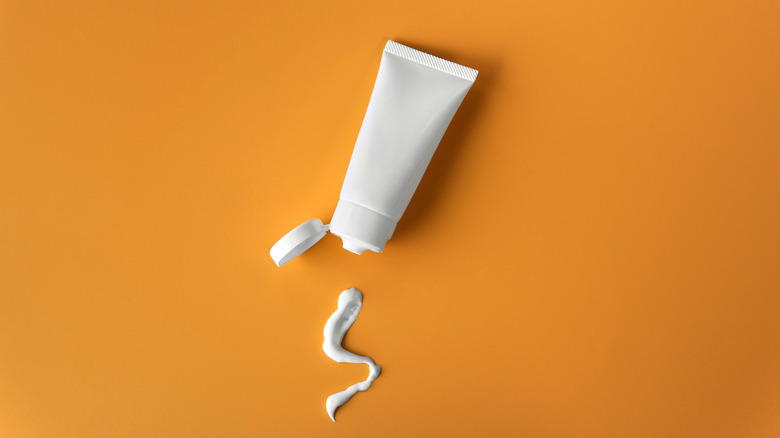How To Tell If You Have Sunscreen Allergies
Whether you're going out for a jog around the block or headed to the beach, putting sunscreen on your face and body should always be done first. Sunburn is a very real — and painful — side effect of excess UV ray exposure (via Mayo Clinic.) No one wants to deal with the painful itchiness or the fluid-filled blisters that are symptoms of sunburnt skin, especially during shorts and bikini season when you might want to show off some skin. So when you're heading out for a day of fun in the sun, most people will grab a bottle of sunscreen to go along for the trip.
But for some, staying away from sunscreen is the better option. In a 2010 study on the skin's reaction to the ingredients commonly found in sunscreen, it was found that about one percent of participants had an adverse reaction. Although the condition is rare, sunscreen allergies do exist and could very well be something affecting you without your knowledge.
Rashes can be a sign of sunscreen allergies
It can be tricky to determine if you have sunscreen allergies, and according to Medical News Today, it's common that these allergies do not become apparent until long after applying sunscreen. To make things even more tricky, the symptoms of sunscreen allergies are often similar to the way your skin reacts when sunburnt. That's right; red, itchy skin that looks like a rash is often a telltale sign of being sunburnt, having a sun allergy, and a sunscreen allergy. So, how can you tell the difference between them?
DermNetNZ, a dermatologist-supported resource bank based in New Zealand, suggests that people who think they may have a sunscreen allergy perform a patch test, calling it the best way to determine if you are allergic or not. You can perform the test from the comfort of your own home, under the guidance of your physician, by applying a little sunscreen to a delicate area of your skin and monitoring how your skin reacts over the course of a few days.
Sunscreen is filled with fragrances
There are a ton of false facts about sunscreen floating around out there, and one of them is that all sunscreen is the same. That couldn't be further from the truth, especially for people with sunscreen allergies. Sometimes it's not the sunscreen itself that's causing you to break out in a rash but the added perfumes and fragrances in that specific sunscreen.
Fragrance allergies affect around 1 to 2 percent of the population, making sweet smells the likely culprit for why you're running into issues when wearing sunscreen (via ECARF.org.) Added fragrances are usually meant to make a product more appealing to wear, but if it's causing your skin problems, you should opt for a fragrance-free sunscreen. Allergic Living lists mineral sunscreens as the best allergy-friendly sunscreen. Mineral sunscreens swap out long, scientifical-sounding names for natural ingredients that are perfect for delicate skin.


